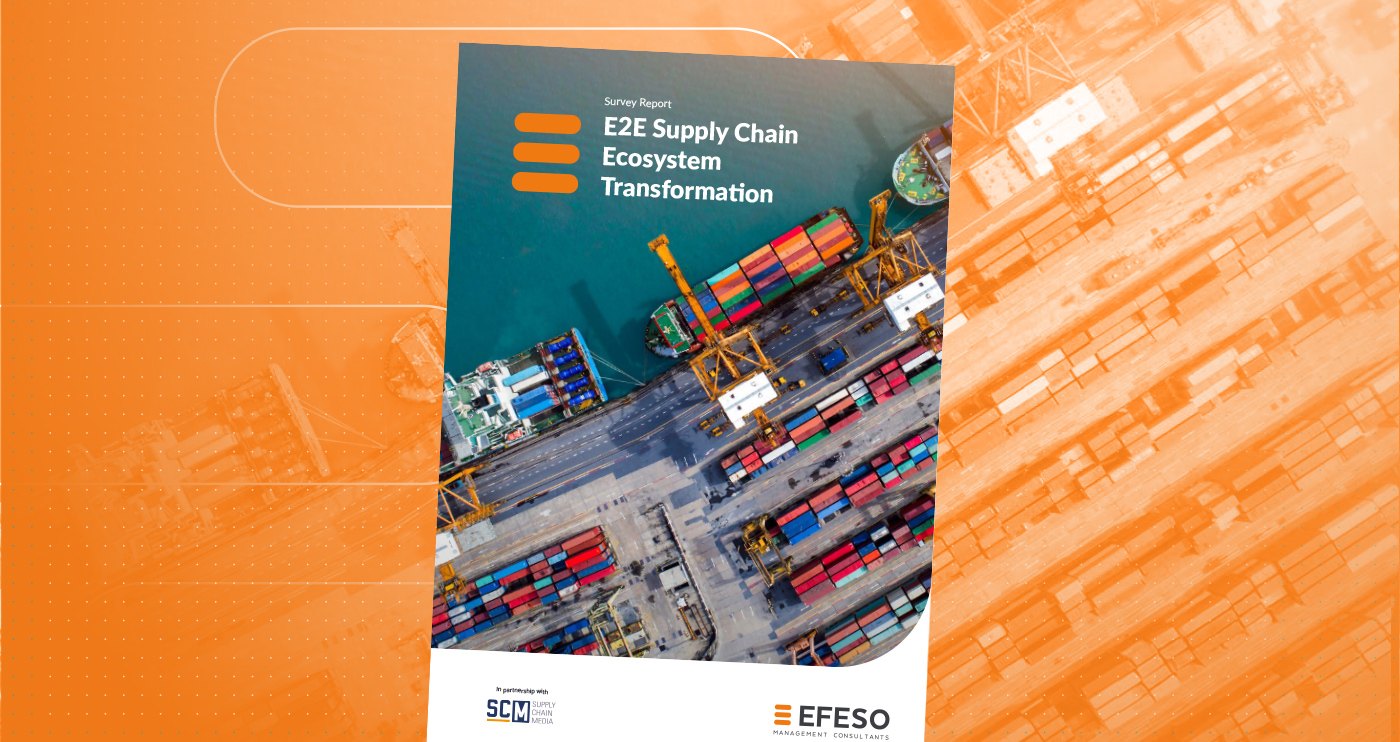- What is the impact of the transformation towards a circular supply chain and how can transparency about benefits and costs be established? How do you evaluate them from a cost and sustainability perspective?
- What approaches and tools help to incorporate these effects into business decisions?
- What contribution does a circular supply chain make to reducing costs, e.g. by recycling (scarce) raw materials? What needs to be invested in this, for example in terms of logistics, process technology, partnerships?
Circular Supply Chain
The circular economy serves industrial companies as a framework for sustainable management. It provides the essential criteria for influencing the use of resources, the generation of waste, and the consumption of emissions and energy, and for minimizing these by closing energy and material loops. An applied circular economy is thus one of the central building blocks of a company's sustainability strategy.
Driver and touchstone of the circular economy is the supply chain management. After all, it is not only a matter of achieving ecological advantages for companies, for example by reusing end-of-life products, but also of opening new markets. At the same time, integrating the circular economy can strengthen resilience against failures in the supply chain and open up solutions for dealing with resource scarcity. In this case, the supply chain becomes a "Circular Supply Chain".
Focal points and tasks in Circular Supply Chain projects of EFESO include:
Improving the cost and sustainability balance
Establishment and further development of resilient value creation
- What contribution does the circular supply chain make to increasing the resilience of supply chains to supply bottlenecks and reducing dependencies on individual suppliers or regions?
- What partnerships are needed to secure market access, coordinate logistics, and reliably extract raw materials or components? Is a differentiated supply chain required to treat the flow of goods differently depending on the origin of the raw materials or components?
- Where are the challenges of a circular supply chain - both on the market side due to new competitors and changed supplier structures - and in terms of complexity within the company? For example, in the development of the organization, of competencies, in the flow of work processes or in the exchange of information?
Identifying and qualifying the stakeholder
- Which company divisions are to be involved in the establishment of a circular supply chain? How are the roles and responsibilities between supply chain and logistics as well as R&D, production, sales, IT and controlling to be organized?
- Which partners can take over activities from the company when setting up and operating a circular supply chain?
- How can the workforce be empowered for the new processes? How can know-how be built up to implement the respective return strategies and promote circular thinking?
Adjustment of the business model
- Do circular supply chains result in new business models for the growth of the company? What new markets can be developed?
- How can access to circular raw materials be secured, e.g. by changing cooperation and intensifying partnerships with customers?
- How are the cost and sustainability advantages allocated and distributed in the value network?
Establishing and managing circular supply chains
In contrast to supply chains with a linear structure, circular supply chains take into account an extended life cycle of a physical product, from its manufacture and use through several reuse stages to disposal. The industry, the market environment and company- or product-specific initial conditions therefore determine the path to successful realization of circular supply chains. The following points illustrate the design framework.
Motivation for the development of circular supply chains
Companies are increasingly establishing new supply chain structures that inherently take the aspect of recycling into account. The motivation for this is multi-faceted:
- Resilience and securing access to raw materials and components by reducing risks of supply shortages, natural disasters, or geopolitical tensions.
- Developing new markets with lower-cost products through reuse.
- Securing established customer access and keeping out new competitors.
- Saving energy and material costs compared to new production.
- Reduction of total costs over the entire product life cycle (total lifecycle cost management).
- Contribution to sustainability through economical use of scarce resources (energy, waste, wastewater and other environmental impacts).
- Positive brand image.
Ultimately, the design of a circular supply chain must be financially attractive and economically viable. From a cost perspective, the reclaimed, recycled product should not become more expensive in the long term than a newly produced, comparable product.
Variants for the product cycle
An essential prerequisite for implementing a circular supply chain is that the products retain their value at the end of their life cycle. These can be recyclable components or raw materials that are bound in the product. Meaningful recycling requires that efficient processes make it possible to extract components or raw materials at the end of the primary product life cycle and reuse them.
The type of product recycling and reuse depends on the products as well as the condition of the respective end-of-life product. These can be the company's own products as well as those of competitors. In addition to suitability, an assessment must be carried out in each case from the point of view of costs and sustainability.
The following circuit variants are common. Which variants and cycle intensity a company implements depends on the product and business model.
Repair / Maintain
Products are usually first maintained or repaired. This ensures the continued use of the product.
Re-Use
If the product is no longer used by the customer, the manufacturer can buy it back. If the old product continues to fulfill its functions with very good quality, it can be resold directly.
Refurbish / Remanufacture
The functionality of the old product must be restored. For this purpose, it is disassembled into its components. The individual components are overhauled, tested and remanufactured to match the quality of a new component. Lastly, the final product is reassembled from the refurbished components. After successfully passing quality tests, a warranty can be issued. If only some components of the old product can be reused, they can be offered as spare parts.
Recycle
All components that cannot be remanufactured are recycled. For this purpose, the end-of-life product is disassembled and separated according to materials. Particularly valuable raw materials can be reshaped and used as raw material for new products.
Recover
For material that can no longer serve as a raw material for the new product, the only consideration is whether it can be used in other industries - for example as a filler or admixture.

EFESO-STUDIE: E2E SUPPLY CHAIN ECOSYSTEM TRANSFORMATION
How can supply chains be transformed in times of global uncertainty? The EFESO study “E2E Supply Chain Ecosystem Transformation” shows how over 100 SCM executives are focusing on resilience, agility and digitalization until 2027 - and why looking beyond your own company is becoming a success factor.
Read more ›
Implement Circular Supply Chains with EFESO
Unlock the potential of your supply chains with the consultants of EFESO. Together we develop and implement processes, structures and systems for a circular supply chain that fit your company and business model.
As a starting point, we use our proven approach to identify areas of action and opportunities for your company in the following phases:
- Inventory based on our Circular Supply Chain Assessment.
- Definition of the target picture and initial potential assessment.
- Determination of the need for change and assessment of benefits.
- Creation of an implementation roadmap.











